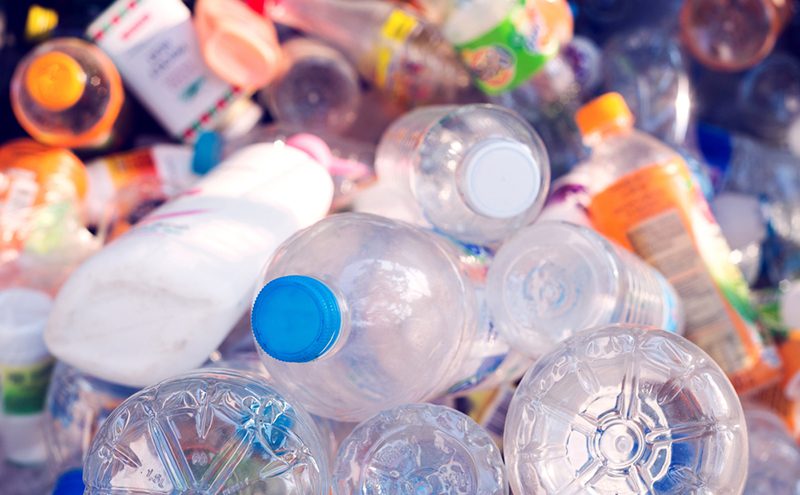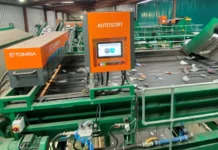
• Collaboration between Neste and Renew ELP will use plastic waste as a feedstock for sustainable oil production
• ReNew ELP’s patented technology chemically recycles end-of-life plastics into chemicals and oils, cutting greenhouse gas emissions by more than 70%
A collaboration between a renewable oil producer and a UK-based plastic recycling specialist is seeking to “revolutionise the way that plastic waste is treated around the globe”.
In mid-August Teesside-based ReNew ELP and Finnish refinery giant Neste signed a Memorandum of Understanding that will see both companies work together to capitalise on the value of waste plastic as a raw material feedstock for the production of liquid hydrocarbons, chemicals and new plastics.
In Europe, around 27 million tonnes of post-consumer plastic waste is generated each year. Approximately a third is currently collected for recycling, with the remainder either landfilled, incinerated or dumped, polluting vulnerable ecosystems.
ReNew ELP’s breakthrough process chemically recycles waste plastics into stable synthetic oils and petrochemicals. The company’s patented Catalytic Hydrothermal Reactor (Cat-HTR) technology, developed by Australian company Licella, uses water at high pressure and high temperatures to recycle a wide range of feedstocks, including end-of-life plastics and used tyres.
The use of plastic waste via the Cat-HTR process achieves substantial greenhouse gas reductions when compared to the use of fossil fuel feedstocks. An independently-validated lifecycle analysis has shown greenhouse gas emissions are reduced by more than 70% during the project’s lifetime.
Richard Daley, Managing Director of ReNew ELP, said: “Neste is the world’s largest producer of renewable oils refined from waste and residues, and has set a target to process more than one million tonnes of waste plastic as a raw material in its refineries by 2030.
“We are delighted that Neste has seen the vast potential of our Cat-HTR process. Our game-changing technology provides an innovative solution to the global problem of plastic waste disposal and contributes to the establishment of a circular economy. This partnership will enable both companies to leverage our combined expertise to improve sustainable operations and turn end-of-life plastic waste into valuable resources.
“Neste has a deserved reputation as one of the most sustainable companies in the world*. As a global leader in the production of sustainable, high quality, low carbon products, they are the ideal partner for ReNew ELP as we move towards the start of construction for our first commercial plant towards the end of this year.”
In January 2018, the European Union released its Strategy for Plastics in a Circular Economy, which aims to increase the reuse and recycling of plastics to 55% by 2030.
Daley continued: “ReNew ELP aims to play its part in establishing a genuine circular economy for plastics and petrochemical products in Europe by deploying our patented technology, which has been developed and tested extensively at a pilot plant in Australia over the past decade.
“Using waste plastic as a raw material increases resource efficiency, reduces dependency on crude oil to produce new plastics, and cuts energy use and emissions compared to using fossil fuels as the raw material. By extracting value from this energy intensive waste stream, we can reduce the global problem of disposing of plastics by pioneering the chemical recycling of plastic waste.”
ReNew ELP is building the first commercial scale Cat-HTR plant at the Wilton International Site in Teesside to recycle end-of-life plastics. The plant will initially recycle 20,000 tonnes of end-of-life plastic per annum but ReNew ELP has planning consent for a further three units, with a potential total processing capacity of 80,000 tonnes per annum.
ReNew ELP’s patented Catalytic Hydrothermal Reactor (Cat-HTR) technology was developed by Australian company Licella over the past 10 years and has already been extensively tested at a pilot plant in Australia.
ReNew ELP will shortly launch a top up to its previous Enterprise Investment Scheme to raise funds for the construction of the plant, which is targeted to commence in late 2018 and to be operational by the end of 2019.
ReNew ELP is supported by Armstrong Energy, a specialist sustainable infrastructure asset management company, which owns the licence for the Cat-HTR technology and is leading on the financing of the project.







